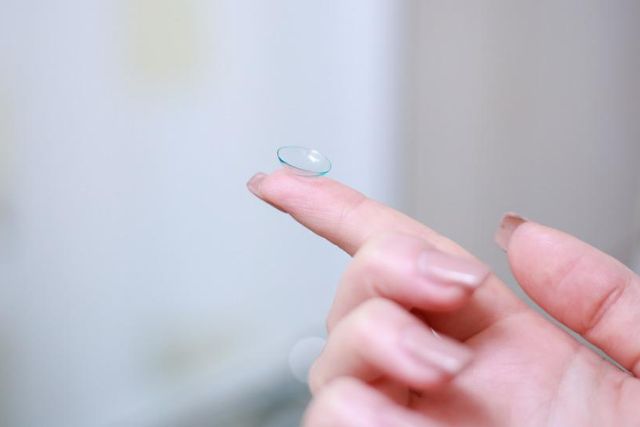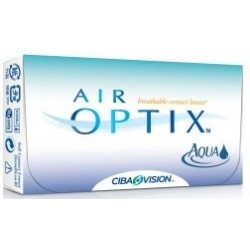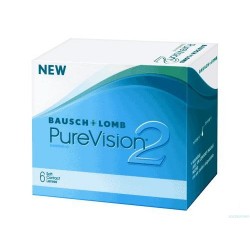Wearing Contact Lenses and Blindness- What you need to know?

Contact lenses provide people with vision issues with a great alternative to glasses. Unlike glasses, they are functional and offer an aesthetically pleasing experience, all while correcting your vision. But some myths prevent people from using lenses freely.
Can Contacts Make You Blind:
Is this a popular misconception among people who are considering switching to lenses? Millions of people worldwide rely on contact lenses to correct their vision. Contacts are thin and transparent lenses placed over the cornea.
They assist in correcting mild and severe refractive errors. Lenses are capable of correcting the same vision issues that eyeglasses do. Here are some vital aspects to know about wearing contact lenses.
Overview of Contact Lens:

Contact lenses contain synthetic materials. They sit on your eye’s cornea to correct a range of refractive errors. Contact lenses can correct a range of vision problems like long-sightedness, short-sightedness, astigmatism, and presbyopia. A majority of contacts are of the following types:
✔ Soft Contact Lenses:
Made of very soft and flexible materials, soft lenses are comfortable to use and conform to the eyes.
✔ Hard Contact Lens:
These lenses contain rigid and gas-permeable plastic, which covers the cornea.
When Can Contact Lenses affect your Vision?
Wearing contacts is a functional way to correct your vision. Many people worldwide rely on to wear contacts lenses to correct their vision. However, improper handling of lenses can put you at risk of various conditions which severely affect your vision.
In rare cases, these conditions can cause blindness. As long as you keep pace with your regular cleaning schedule, contact lens won’t pose any threat. It is imperative to follow your optometrist’s instructions to maintain the lenses. Here are some common symptoms associated with improper use of contact lenses.
- Severe irritation accompanied by pain in the eyes
- Swelling around the eye
- Conjunctivitis
- Sensitivity to light
- Hazy vision
- Keratitis or inflammation of the cornea
If you experience any of these symptoms, promptly seek medical assistance.
Do You Sleep While You Wear Contact Lenses?
You cannot sleep with your contact lens. If you tend to sleep with contacts, you’ll be at a greater risk of corneal infection. Moreover, the risk of keratitis is higher when you wear contact lenses overnight. The cornea is the only part of your body that receives oxygen from the atmosphere and not the blood supply.
Hence, when we close our eyes while sleeping, we decrease the amount of oxygen to the cornea. Wearing lenses further reduces oxygen supply. To avoid blindness and severe eye infection, avoid sleeping with your contact lenses. In case you got eye infections you should consult an eye doctor as soon as possible to cure the issue.
You can avoid this problem by buying night and day contact lenses. However, it is important to don’t use them longer then recommended.

Air Optix Night and Day (3)
Air Optix Night & Day 3 contact lenses per box Sick and tired of the delicate cycle of inserting, removing, cleaning, and sto...
Situations where Contact Lenses are Unsuitable
Here are some situations in which you won’t be able to use contact lenses.
- Eyes remain dry most of the time
- The cornea is prone to allergies
- You work with chemicals
- You live in a polluted environment
- Recent eye surgery
It is always a good idea to consult a licensed optometrist before using lenses.
You can choose:

Air Optix Aqua (6) contacts No prescription required
Air Optix Aqua contacts without prescription for beautiful eyes Air Optix Aqua features one of a kind SmartShield technolog...
How to care for your Contact Lenses?
Contact lenses can only pose a threat when misused. But when used properly, contact lenses are a worthy alternative to glasses. Here are some tips to follow while caring for your lenses.
- Always wash your hands properly before using lenses
- Rub and rinse your lenses with good quality contact solution
- Refrain from using any leftover lens solution
- Don’t expose your lenses to contaminated water sources
- Change your contact lens case after a period of three months
Summary:
If you wear lenses by following all safety procedures, there is no risk of infections and blindness. Visit an ophthalmologist (eye doctor) to ascertain your eligibility for wearing lenses.
A lot of people ask doctors if contacts can make them blind in the long run. Read to know if contacts can make you blind or can affect your vision negatively.
See also:

Purevision 2HD contact lenses
PureVision 2HD from Bausch + Lomb offers a distinct blend of convenience, comfort, and superior vision quality. These spheric...

Soflens 59 contact lenses
Soflens 59 is a monthly contact lens that is worn during the day then taken out at night. The lens is 59% water (hence the na...






